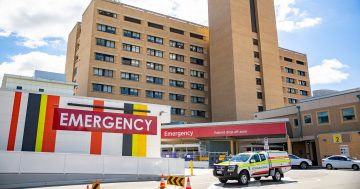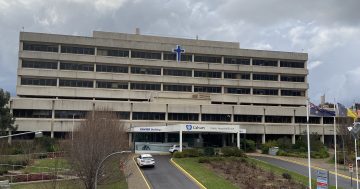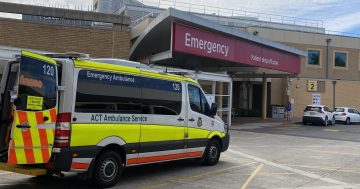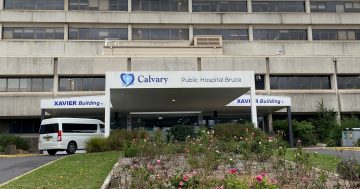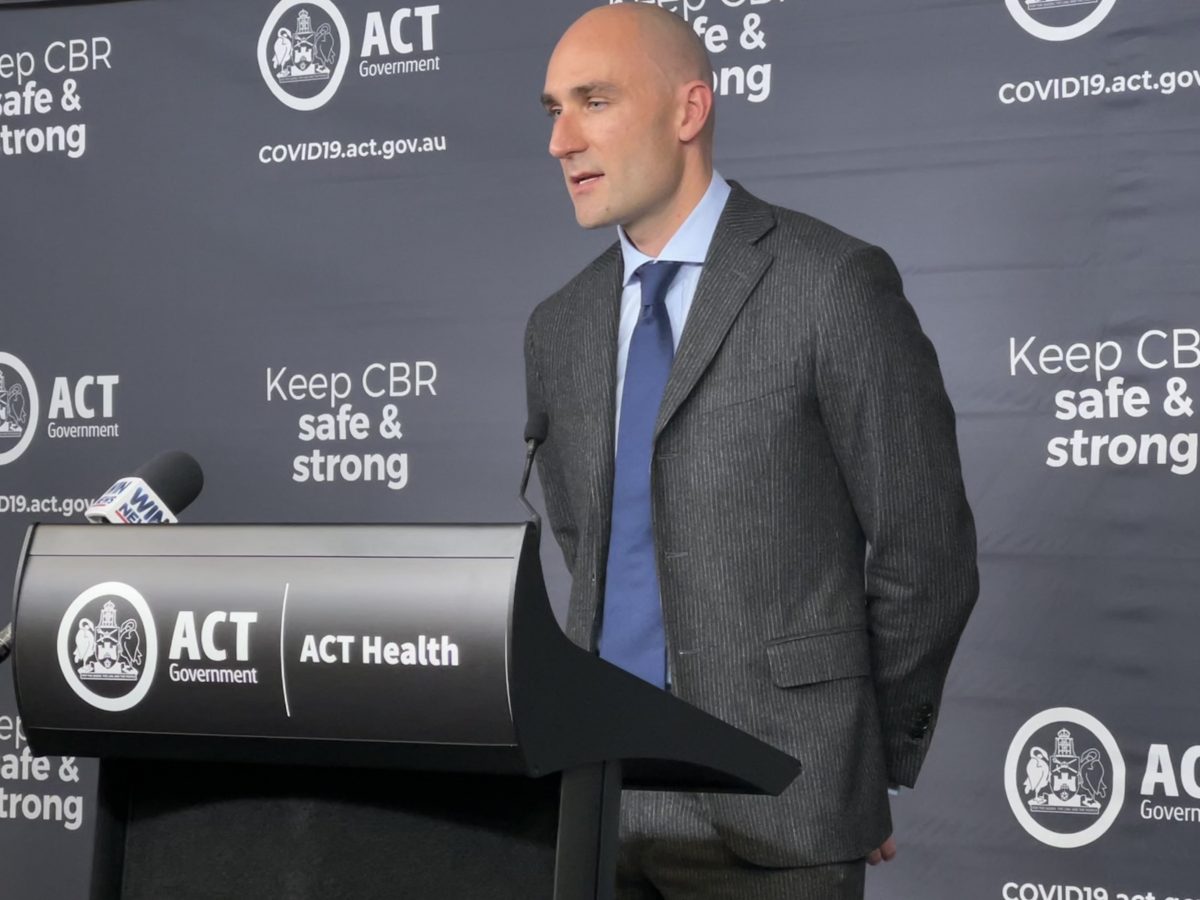
Canberra Health Services boss Dave Peffer said the hospital is under extreme pressure, but the system will stand up to the test. Photo: Lottie Twyford.
As health authorities issue dire warnings about daily COVID-19 caseloads doubling, if not tripling in a matter of weeks, the head of the hospital has added his own grim predictions to the mix.
Canberra Health Services CEO Dave Peffer said today the health system, which is already under “increasing strain”, would survive this winter and the expected spike in cases, but it would come at a price.
He said that cost would be health-related for patients who would likely face lengthy delays for elective and non-emergency surgeries, and an already-exhausted workforce would be increasingly burnt out.
“Time delays aren’t free in healthcare because at the other side of that time delay is a patient and a family that has been waiting for care,” he said.
“That patient could be living with mobility issues or chronic pain, and so with each decision we make, we recognise that is the cost.”
Mr Peffer wouldn’t put a date, a number of COVID-19 patients or any other figure on just how much longer the hospital could continue in this way, instead repeatedly asserting the system would and could pull through the challenging winter ahead.
“People can expect that – if we see a tripling of cases – the health services available in the Territory will markedly change,” he said.
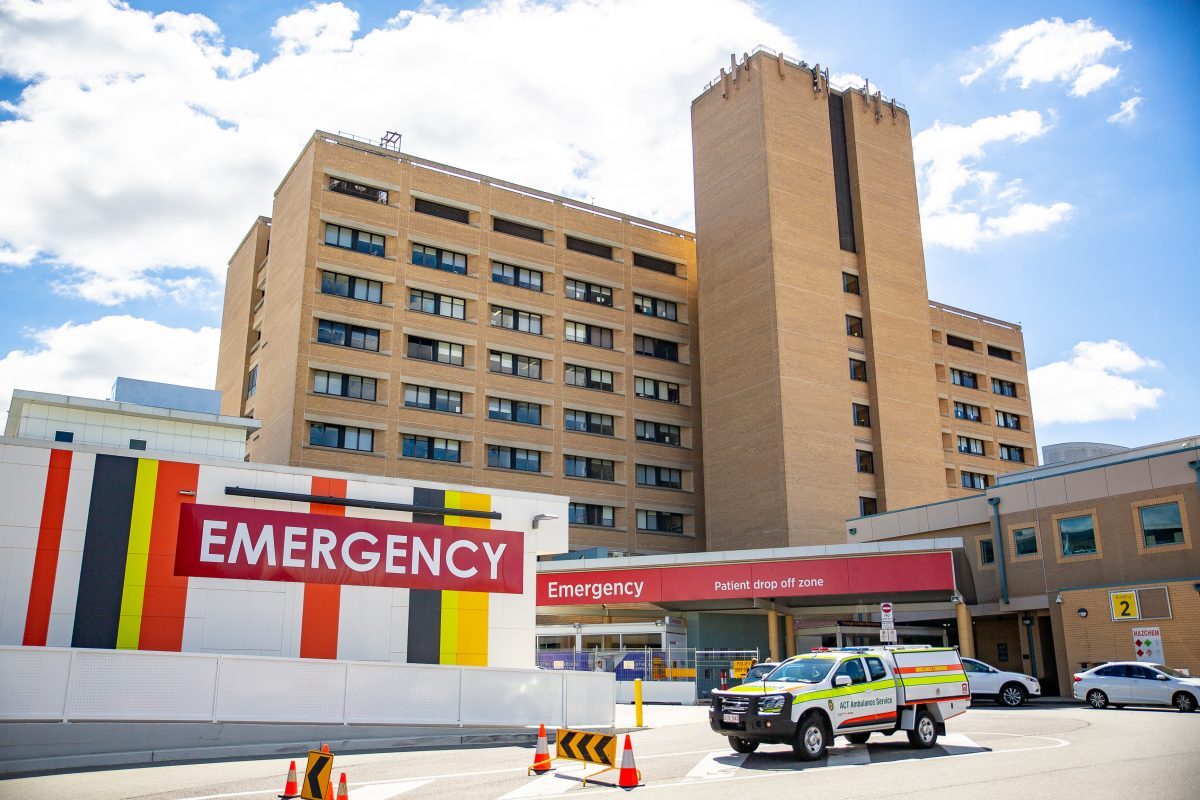
As of today, there are 136 people with COVID-19 in Canberra Hospital. Photo: File.
As in jurisdictions around the country, the ACT’s health system is facing what authorities have described as a perfect storm – existing chronic staff shortages, high numbers of COVID-19 patients requiring care, pandemic-related leave wreaking havoc on staffing levels and the usual strain associated with winter illnesses.
If the modelling is correct, COVID-19 cases are set to soar to new heights of 2000 and 3000 in the coming weeks, Chief Health Officer Dr Kerryn Coleman said today, and this spike would be accompanied by rising hospitalisations.
Mr Peffer said decisions about what care could be provided were being made on a daily basis by management, which has now been the case for some time at the hospital.
“At an operational level, every morning, we make decisions about how we can keep the service safe,” he explained.
That could mean shortening the opening hours of services or deferring procedures and specialist clinics.
For example, this morning, Canberra Hospital could not operate 30 of 90 treatment spaces in its emergency departments due to bed block and workforce shortages.
It was also grappling with a quarter of the junior medical doctors being unavailable for work because of COVID, flu or other reasons.
In the last three months alone, 18,000 days of COVID-19 leave had been used by Canberra Health Services team members.
“That’s not including influenza and other respiratory viruses or other leave, and that places a pretty big strain on those who are left to carry the load and keep those services running,” he said.
“I’d be surprised if we can get through one week without at least one day impacted by [cancellations of surgeries and specialist clinics]”.
To help reduce the spread of COVID and its impact on the health system, Mr Peffer urged the wearing of masks and for people to be up to date with their vaccinations.















